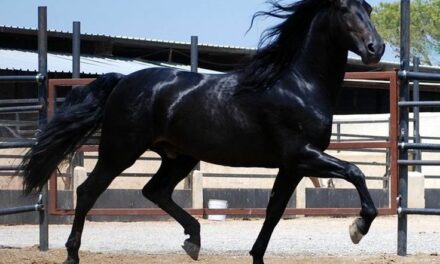by Kimberly K. Egan MHC President (first published in the December 2023 Equiery)
And just like that, winter is upon us.
The competition season goes out with a bang in Maryland with the marquee events during October Horse Month and national finals in several disciplines around the country. As we have in years past, we conducted surveys of spectators and participants at the MARS Maryland 5 Star at Fair Hill and the Washington International Horse Show at Showplace Arena. This issue contains an analysis of those surveys – our readers complimented both venues on their several improvements from last year.
Now we settle in and hunker down for cold weather and mud. Mud is a big deal in Maryland because almost the entire state drains into the Chesapeake Bay. Mud and silt can carry nitrogen off the land and into the water, where it can contribute to algae blooms and aquatic plant die-off caused by lack of oxygen. Horse manure can do the same. Maryland is under a legal obligation to reduce nitrogen and phosphorus run-off into the Bay.
Our Soil Conservation Districts (SCDs) work hard to help horse farm owners manage mud and manure so that Maryland can achieve its mandated goals for the Watershed Implementation Plan, for credit in the Chesapeake Bay Water Quality Model. The Montgomery County Soil Conservation District in particular has asked us to help them collect information about conservation practices that horse farms are already using voluntarily, so that Montgomery County can get credit for them.
A dumpster that is used to collect manure gets the same Best Practice credit as as an engineered animal waste storage structure designed by the SCD. But while the SCD knows about the engineered waste storage facilities it has designed, it doesn’t know about dumpsters that are being voluntarily used.
If you are currently using a dumpster to collect your manure, please contact the SCD at 301-590-2855 and let them know. Getting this information into the hands of the SCD will not only help Montgomery County meet its goals, but will also provide evidence of what good stewards of the land horse farms are.
In other mud-and-horses news, it is the time of year to keep the federal Clean Water Act regulations in mind, specifically those pertaining to Animal Feed Operations (AFOs) and Concentrated Animal Feed Operations (CAFOs). Our Government Relations column this month explains that under the regulations, and for purposes of application to horse operations, an Animal Feed Operation is any animal operation where animals are kept in confined situations on a property for a total of 45 days in any 12-month period and where vegetation or forage growth is not sustained in the normal growing season over any portion of the facility, i.e., no pastures or hay fields.
According to our umbrella organization, the American Horse Council: “No matter what size an operation is, if it is an AFO, it may be designated a CAFO. Many diverse types of horse operations including show grounds, breeding facilities, racetracks, large recreational boarding stables, and more could be regulated as a CAFO. Being defined as a CAFO requires you to manage wastewater and drainage, have a nutrient management plan, and repeat the permit inspection annually.”
Read more about how Maryland regulates AFOs and CAFOs in this month’s Government Relations column.
All of us here at the Maryland Horse Council wish you a warm, safe, and jolly holiday season. We will see you in the new year.












